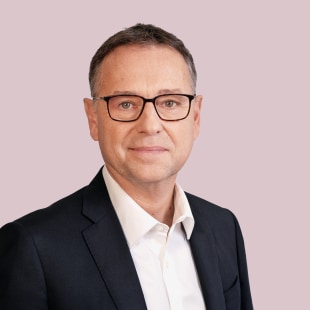Sustainable savings, from concept to reality
The desire for meaningful actions is growing along with an awareness that we must sustainably preserve the common good. For those reasons, economic players and citizens are gradually gravitating towards responsible savings and investment choices in each of their individual objectives: building up savings, preparing for retirement, expanding businesses, or financing projects with a positive impact.
The need to direct investments towards sustainable and ethical projects that are useful to society and the environment would seem increasingly obvious. In addition to the three traditional criteria for investment choices - profitability, risk and liquidity - there is now a fourth: positive impact.
However, both in France and around the world, demand has not translated into concrete results. According to an Odoxa-BNP Paribas-B-Smart study carried out in 2021, 72% of French savers want their savings to meet at least one of three objectives: boost the economy, create jobs, and foster the ecological transition. Yet, according to an Ifop study in 2020, only 5% of French consumers have already invested in responsible savings solutions.
« Projects chosen by investment funds are subject to specific extra financial criteria, which are quantified, monitored and measured. »
The primary challenge for players in this sector is thus to increase awareness and explain how, today, our savings can both constitute a profitable investment and contribute to positive actions for the environment and society.
READ ALSO - Responsible savings: Understand the essentials with just one infographic!
Put simply, responsible savings means that, after rigorous financial analysis, projects chosen by investment funds are subject to specific extra financial criteria, which are quantified, monitored and measured. The aim is to assess and measure the real impact of these projects on the environment, climate and/or society, while monitoring their progress and demonstrating that their financial performance is not lacking. Indeed, the long-term profitability and financial stability of these investments have been shown by numerous international sector studies. Their conclusion is clear: A sustainable and responsible economy is gaining resilience and strength.
In looking for more meaningful actions, savers are also in need of advice from banks and insurance companies to choose responsible savings solutions that precisely meet their needs and values.
Responsible savings solutions rely on a number of selection, measurement and certifications
Step 1: Identifying relevant funds
What is a responsible savings solution? How is it created? How is it monitored?
Responsible savings solutions rely on a number of selection, measurement and certification tools that clearly identify investments oriented towards responsible funds and therefore ensure their ethical nature and commitments.
Asset management companies use all international criteria for extra financial ESG (Environmental, Social and Governance) assessments to build their sustainable investment funds. They integrate these ESG criteria into their choices of investments in companies and projects that:
- Either have a positive impact, through SRI, solidarity or thematic funds;
- Or, at least, have a non-negative impact, which is the very first level of sustainable investment.
These ESG criteria assess the environmental commitments of companies and their stakeholders (employees, partners, subcontractors and customers).
- Environmental criteria take into account, for example, greenhouse gas emissions, the protection of biodiversity and the prevention of environmental risks.
- Social criteria take into account accident prevention, employee training, compliance with employee law, the subcontracting chain, social dialogue, etc.
- Governance criteria check the independence and diversity of the board of directors, executive compensation, the management structure and the presence of an audit committee.
A new European regulation, SFDR (Sustainable Finance Disclosure Regulation), has imposed transparency obligations on financial market participants since March 2021. It answers the question "how is ESG taken into account?" And thus classifies investment funds open to savers into 3 categories: Funds that do not have a sustainability objective, funds that promote ESG and funds that have a explicit sustainability or impact objective. This will allow for more standardised transparency, which will make it easier for clients and investors to compare products and players. BNP Paribas has taken advantage of this new regulatory requirement to accelerate its already pro active approach to this issue. 84% of BNP Paribas Asset Management's open-ended funds distributed in Europe are already classified as "Articles 8 or 9", based on SFDR.
Labels can help show the way
Sustainable finance labels, meanwhile, allow savers and professional investors to easily identify funds that implement a robust, responsible investment methodology and that will lead to measurable, concrete results. Created and managed by the governments of different countries, they are attributed after a strict monitoring process led by independent bodies.
- The French SRI label (Socially Responsible Investment) along with the Belgian label Towards Sustainability - the latest in the European sustainable finance label landscape – are leading the way.
- The other European labels, in particular LuxFLAG ESG, the German FNG-Siegel and Umweltzeichen, and the North European Nordic Swan continue to be dynamic tools, despite relatively modest volumes of assets under management.
- Some labels specialise on a theme, such as Finansol, a French label for solidarity savings investments, and GREENFIN, which ensures that savings products contribute actively to financing the energy and ecological transition.
The SRI (Socially Responsible Investment) label - the best known of its kind - is a powerful accelerator for the development of responsible investment for individuals, enabling savers and professional investors to identify easily the investments that incorporate responsible investment criteria while targeting the same financial returns as traditional products.
Better performing ESG funds
Research on a sample of 745 sustainable funds based in Europe shows that the majority of strategies did better than non-ESG funds over 1, 3, 5 and 10 years (over 10 years, 60% of ESG funds outperformed their conventional equivalents). ESG funds also performed better during the financial crisis: An average excess return of 1.83% in the first quarter of 2020. (Source: Morningstar)
Socially responsible funds can take different approaches
- Best in class ESG selection funds: These finance companies with sustainable development best practices according to ESG criteria;
- Exclusion funds or "ethical investments": These exclude for ethical or moral reasons certain sectors such as armaments, gambling, tobacco, etc., or companies whose activity is deemed hazardous to the environment (coal, GMOs, nuclear, etc.);
- Thematic funds: These invest in companies or sectors linked to sustainable development such as renewable energies, water, the fight against climate change or are committed to social themes: health, access to education, job creation, professional integration, etc.
- Solidarity funds: A solidarity fund invests up to 10% of its assets in socially responsible companies and associations; It also contains the word ‘solidarity’ in its name, while the other 90% is invested in traditional listed companies with good CSR practices.
By taking all of this into consideration, asset management companies that have a real impact on savings, like BNP Paribas Asset Management and BNP Paribas Real Estate Investment Management, can design SRI solidarity funds and sustainable thematic funds that are more easily identifiable by clients. This is also the case for insurers like BNP Paribas Cardif, which offers sustainable units of account (certified) and integrates ESG criteria into the management of its general funds.
BNP Paribas' objective: become a leader in responsible investments
As a leading international banking player, BNP Paribas has a key role to play in responsible financing and is takes this role seriously. Teams have worked tirelessly in recent years to accelerate the development of products and offerings that take into account impacts on nature and society. The Group's objective is clear: become an industry leader in responsible savings solutions. And for that, it has the means: As part of a reorganisation of its activities carried out in May 2021, BNP Paribas created the Investment & Protection Services (IPS) division, which brings together 4 businesses specialising in savings and investment:
- BNP Paribas Asset Management, as a creator and sustainable investment fund manager;
- BNP Paribas Cardif as an insurer, which manages the savings entrusted by its policyholders via its general fund, among others, whose investments aim in particular to finance the real economy through support for businesses;
- BNP Paribas Wealth Management selects responsible investment solutions on behalf of its private clients;
- BNP Paribas Real Estate offers responsible real estate investments.
- This new organisation enables BNP Paribas to develop both deeper and broader expertise in institutional and private banking, life insurance, retirement savings and employee savings, as well as real estate and impact investing.
The themes of SRI funds meet the interests of Europeans
BNP Paribas Asset Management offers highly targeted SRI themed funds, such as BNP Paribas Human Development, BNP Paribas Inclusive Growth, BNP Paribas Aqua, BNP Paribas Social Business France, BNP Paribas SMaRT Food, BNP Paribas Green Business, BNP Paribas Energy Transition, BNP Paribas Climate Impact, and most recently BNP Paribas Ecosystem Restoration. All actions dedicated to a more inclusive society and a better-protected environment that meet the interests of Europeans.
BNP Paribas Real Estate Investment Management also offers a range of responsible real estate funds, such as the BNP Paribas Diversipierre, the first property investment mutual fund (“OPCI”) to obtain the SRI (Socially Responsible Investment) label in November 2020. This has set out an ESG roadmap with performance indicators and a commitment to the new SFDR regulations in force. In addition, BNP Paribas Real Estate Investment Management recently launched the European Property Impact Fund, the first European real estate fund with a positive impact and in line with the Paris Agreement on climate change. Positive social impact is also being sought through the launch of a healthcare real estate fund, the Healthcare Property Fund.
Step 2: Choosing your responsible investment product
Once designed, how are these specific responsible savings products distributed? The major banks have both the production, investment and distribution capabilities for this type of solution and this is done for all their clients: Institutional clients, corporates, individuals and private clients.
BNP Paribas teams receive training to master these subjects, allowing them to support their clients with the key information they need to make their choice.
For individual customers, this support comes directly through retail banking network branches, independent brokers and advisers, insurers and distributors of financial products. The idea is to promote responsible savings solutions and make them accessible to all, regardless of their distribution channel.’ To complement this support, BNP Paribas Wealth Management has designed innovative practical tools such as:
- The digital myImpact questionnaire, which converges savers' convictions and financial and/or philanthropic solutions offered by the bank, helping clients define their priorities and the level of impact they want to achieve;
- Rating methodology (‘Notation Trèfle’): BNP Paribas funds, as well as those recommended by the bank, are rated between 0 and 10 clovers (‘trèfle’ in French)according to their level of sustainability integration, allowing customers to compare easily before investing and have a view of the sustainability of their entire portfolio by financial instruments.
Sustainable investments in numbers:
in sustainable investments worldwide*
in assets under management in Europe**
What types of placements make it possible to invest in responsible funds? In fact, they have the usual structure, but with an ISR target, for example:
- Securities accounts composed of ETFs (exchanged traded funds);
- Life insurance companies (according to an Odoxa Aviva France study dating back to September 2020, 59% of French consumers would choose one insurance company rather than another because it proposed ‘positive’ products);
- Employee savings plans and company savings plans (employee savings plans are one of the main sources of sustainable finance, since employee savings plans must offer a solidarity fund in France);
- Real estate funds (oriented according to demanding environmental criteria concerning energy performance and social use criteria for buildings);
- Structured products, such as those supporting charitable causes.
Clients for sustainable savings solutions can come from all profiles and sectors: individuals, companies, employees, associations, institutions, public authorities, etc. For example, pension savings represent a strong opportunity for a positive transformation of savings, such as the actions implemented by BNP Paribas “Epargne & Retraite Entreprises” (ERE, Professional Savings and Retirement) and its positive impact bonus. Additionally, there is the solidarity investment arm of BNP Paribas Asset Management and its 90/10 funds, which represent 2.8 billion euros in assets under management.
Stewardship, or how to be proactive with companies
In addition to existing tools, methods and skills to develop responsible savings, a developing practise is accelerating the responsible choices of companies: Stewardship. BNP Paribas Asset Management engages with the management of the companies in which it invests and votes at the annual general meetings of shareholders of these companies to encourage them to adopt even more sustainable and responsible practices. This creates a virtuous circle: Companies moving towards a more sustainable model will win out from the crisis and deliver more performance for savers, who, through their choices of investments in responsible projects and companies, help to create a better world.t.
Step 3: Measuring the effects of investments on the economy, society, climate, etc.
Measuring the impact of responsible investments must be just as rigorous as reporting on financial results.
To achieve this objective, the Group's businesses, such as the Sustainability Centre of BNP Paribas Asset Management(Opens in a new tab), are deploying practical tools and resources. One of its tasks is to steer a coherent vision of responsible investment and to monitor its progress towards achieving objectives.
Meanwhile, improving data collection and analysis is a top priority, while strengthening the analysis of companies that are part of the investment universe of asset managers.
As it has confidence in these funds, BNP Paribas invests or co-invests itself in sustainable projects, such as the launch by BNP Paribas Asset Management of the ETF (Exchange Traded Fund) on the blue economy, in which BNP Paribas Cardif has invested. BNP Paribas Principal Investments, the entity in charge of proprietary investment at BNP Paribas, also recently initiated the creation of a new fund with the Solar Impulse Foundation. This fund, which will be managed by BNP Paribas Agility Capital, aims to invest 150 million euros in high potential start-ups mobilised to support the ecological transition.
" Improving data collection and analysis is a top priority, while strengthening the analysis of companies that are part of the investment universe of asset managers."
BNP Paribas will commit € 75 M to the fund, which will welcome professional investors that share the same ambition: Supporting the ecological transition and thus working towards the United Nations Sustainable Development Goals. This investment is part of the € 250 M package dedicated by the Group to investing in start-ups in the ecological transition.
"BNP Paribas' ambition is to be a leader of solutions for responsible savings, which we consider fundamental to the future of a more sustainable world. We are creating value for our clients, while also giving more meaning to their savings through investments in the companies of tomorrow. These are the companies that are transforming by adapting their strategies and practices to make a greater positive impact.”
Renaud Dumora, Deputy Chief Operating Officer of BNP Paribas, Head of Investment & Protection Services
**Global Sustainable Investment Review 2018, Global Sustainable Investment Alliance, 2018, gsi-alliance.org



